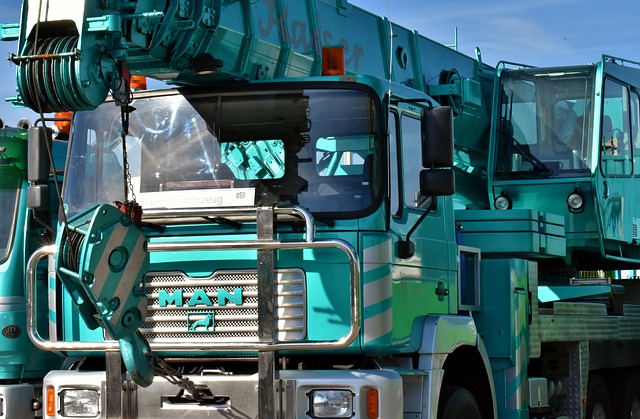For new fleet operators, building resilience through insurance is key, offering financial protection and peace of mind for growth. Cargo coverage is a vital safety measure, safeguarding goods during transit from damage, theft or loss. Understanding unique operational risks and choosing tailored policies ensures stability and minimizes financial losses. Technological advancements in tracking and data insights enable more accurate risk assessments and customized insurance plans for new fleets, enhancing resilience against emerging threats.
In today’s unpredictable landscape, building a resilient business is paramount, especially for burgeoning fleets. The right insurance policies serve as a cornerstone, offering vital protection against unforeseen events that can disrupt operations and finances. This comprehensive guide explores how robust cargo coverage empowers new fleets to navigate risks effectively. From understanding resilience to tailoring unique policy needs, we delve into the essential elements of fleet management, highlighting trends shaping the future of cargo coverage for peace of mind on the road ahead.
Understanding Resilience: Why Insurance is a Cornerstone for New Fleets

Building resilience is paramount for any new fleet operator, and insurance plays a pivotal role in this strategy. Resilience here refers to the ability to withstand and recover from unforeseen events, ensuring operations remain uninterrupted. In the context of cargo transportation, where disruptions can lead to significant financial losses, having the right insurance policies is akin to laying a sturdy foundation.
New fleets, particularly those venturing into the vast realm of cargo coverage, must consider comprehensive insurance as a cornerstone of their success. It provides not just financial protection against potential risks but also offers peace of mind, enabling fleet managers to focus on growth and efficiency. With insurance, new fleets can navigate the challenges of an unpredictable market, ensuring their operations remain resilient and sustainable in the long term.
Cargo Coverage 101: Protecting Your Goods in Transit

For new fleets and businesses involved in shipping goods, Cargo Coverage is an essential aspect to consider. It acts as a safety net, safeguarding your inventory during transit against various risks such as damage, theft, or loss. This type of insurance policy is particularly crucial for maintaining stability and minimizing financial setbacks in the event of unforeseen circumstances.
When it comes to cargo coverage, understanding the basics is the first step towards building resilience. It involves evaluating your shipping needs, identifying potential hazards specific to your industry, and choosing a policy that aligns with these factors. By doing so, you can ensure that your goods are protected not just in terms of monetary value but also in terms of their condition upon delivery, fostering reliability and peace of mind throughout the supply chain process.
Tailoring Policies to Your Fleet's Unique Needs

When insuring a fleet, understanding that each vehicle and operation is unique is paramount. New fleets, in particular, come with specific challenges and requirements that require tailored insurance policies. Cargo coverage is a prime example of an area where new fleet owners should focus. Depending on the types of goods transported, risks vary greatly. A policy that offers comprehensive cargo protection against theft, damage, or loss during transit can be invaluable for these fledgling operations.
Furthermore, new fleets often face higher risk profiles due to lack of operational history and experience. Insurance providers can help mitigate this by offering policies that cater to these specific concerns. Customized liability coverage, mechanical breakdowns protection, and even driver training programs can all contribute to building a robust foundation of resilience for a new fleet, ensuring its longevity and success on the road.
The Future of Fleet Management: Trends Shaping Cargo Coverage

The future of fleet management is evolving rapidly, driven by technological advancements and shifting industry dynamics. One area that’s undergoing significant transformation is cargo coverage, as new fleets emerge with sophisticated tracking systems and data-driven insights. These innovations enable more precise risk assessment and tailored insurance policies, enhancing overall resilience for businesses operating in the logistics sector.
Trends such as autonomous vehicles, real-time monitoring, and predictive analytics are reshaping cargo coverage landscapes. Insurers can now leverage data to forecast potential risks, from weather events to driverless operations. This allows for the creation of customized insurance plans that cater to the unique needs of modern fleets, ensuring comprehensive protection against emerging threats in the ever-changing transportation landscape.
Building a robust foundation of resilience for your growing fleet starts with understanding the importance of tailored insurance policies. By implementing comprehensive cargo coverage, you protect your valuable goods in transit, mitigating risks and ensuring uninterrupted operations. As fleet management evolves with emerging trends, staying informed about these developments is key to making strategic decisions that safeguard your business. With the right policies in place, new fleets can navigate an ever-changing landscape with confidence, knowing they have the protection they need to thrive.
